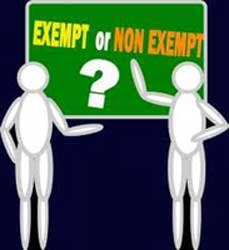The last few years has brought an explosion in the number of lawsuits against employers for wage and hour violations. This article is the second of a two-part series that offers practical tips to dental practices to help them comply with the law and to minimize exposure to lawsuits.
READ PART 1:Practical tips for wage and hour compliance for a dental office: Part I
TIP 4: Don’t assume that your office managers are exempt as executive employees.
The executive exemption may be available in a dental practice. Simply having the title of manager does not qualify an employee for this exemption. To qualify, an employee must be paid on a salary basis of at least $455 per week, have as his/her primary duty the management of a recognized part of the practice, and must regularly supervise two or more full-time employees (or the equivalent). An office manager that supervises only one employee or two part-timers in any given workweek will not meet the standard for this exemption.
TIP 5: Don’t assume that your hygienists are exempt as professional employees.
Dentists paid on a salary basis of at least $455 per week are exempt under the professional exemption. This exemption will also generally apply to hygienists who meet this minimum salary test and who have completed four academic years of preprofessional and professional study at an accredited college or university. But, if a hygienist does not meet all of the components of this test, the hygienist will not be exempt.
TIP 6: Pay nonexempt employees correctly for all “hours worked.”
Nonexempt employees must be paid at least the minimum wage and overtime for all hours worked. In addition to time spent working on-site, the term “hours worked” includes time spent in meetings, training classes, and even certain travel. It may also include time spent working “off the clock,” such as while the employee is supposed to be on breaks or at lunch, or when the employee is performing work at home or away from the office. Practices should understand the full scope of hours worked and pay employees correctly to avoid liability.
TIP 7: Beware of state and local wage and hour laws.
In addition to the federal wage and hour law, numerous states and municipalities have passed or are passing new wage and hour laws that require higher minimum wages or have more restrictive rules about overtime. Be sure to check these laws to make sure your practice is in compliance.
Conclusion
The purpose of this two-part article is to give just a few key tips for wage and hour compliance. Obviously, compliance is much more involved and practices should seek counsel about such matters from an attorney who concentrates on this technical area of the law.
________________
D. Albert Brannen, Esq., is a partner and team manager at Fisher & Phillips LLP, a law firm that represents employers across the country in labor, employment, employee benefits, safety, health, business immigration and civil rights matters. Read more at Martindale.com.







